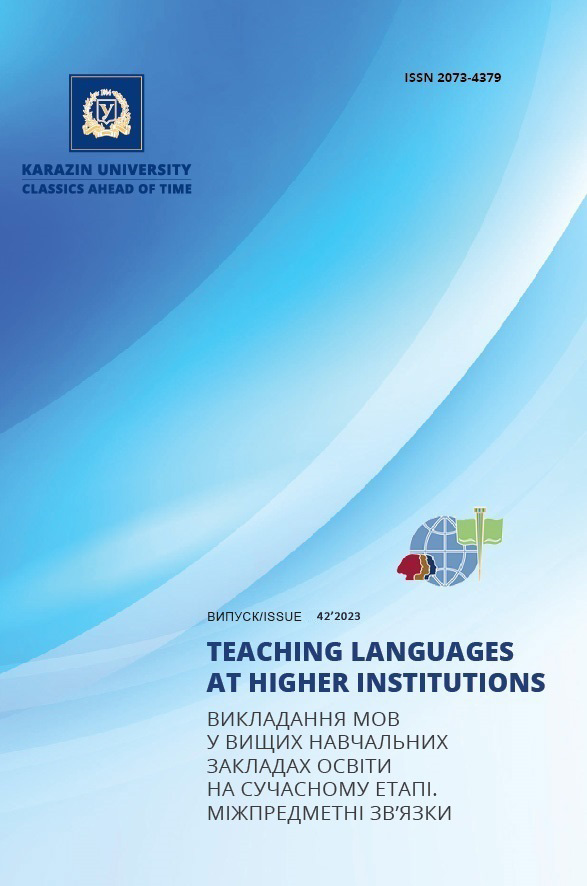Formation of scientific communication etiquette of beginning scientist
Abstract
The article highlights the problem of the formation of a scientistʼs etiquette, in particular the etiquette of scientific communication, of beginning scientists who pursue higher education at the second (masterʼs) and third (educational and scientific) levels. The author emphasizes that it is extremely important for novice scientists to possess the competencies of scientific speech, scientific etiquette, corporate culture, etc. since during scientific research activities these skills will help effective communication in scientific circles and allow the beginners to present their work and research results in the best way.
The purpose of the article is to analyze the problem of forming a culture of scientific speech of novice scientists for the successful presentation of the results of research activities and the development of scientific etiquette for the successful cooperation in scientific circles of the chosen field.
The author used the following research methods: theoretical (analysis and synthesis, generalization and systematization of scientific sources of information) – to identify the state of the raised problemʼs development in pedagogical theory and practice); empirical (interviews, surveys, observations, and pedagogical experience needed to reveal the peculiarities of the formation of the etiquette of scientific communication in students of higher education (beginning scientists)).
The disciplines studied by students of the second (masterʼs) and third (educational and scientific) levels of higher education at Kherson State Agrarian and Economic University, namely: “Philosophy of science” and “Philosophy of science and academic ethics”, are aimed at mastering the necessary competencies for the implementation of high-quality and effective scientific activity, application of philosophical approaches, methods of scientific research, and formation of the relevant qualities of a scientist in students of higher education.
The author enlists qualities of a scientist as a creative personality; scientific traditions; requirements of professional ethics; general ethical principles of a scientist, etc.
Entry into the scientific community for beginning scientists is a difficult stage of professional life, so they should be ready for the challenges that they are going to meet in their research work. It is the teachers of higher education institutions who are responsible for forming the etiquette of scientific communication in students of higher education.
Downloads
References
Code of ethics of the scientist of Ukraine. (2009). Available at: https://zakon.rada.gov.ua/rada/show/v0002550-09#Text [Accessed 07 Sept. 2022] [in Ukrainian].
Kiseljov, M.M. (2012). Meeting Points of Ethics and Science. Science. Religion. Society. No. 2, pp. 30–39. Available at: http://dspace.nbuv.gov.ua/bitstream/handle/123456789/86826/05-Kiselev.pdf? sequence=1 [Accessed 07 Sept. 2022] [in Ukrainian].
Code of honor of the National Technical University of Ukraine “Kyiv Polytechnic Institute”. (2021Available at: https://kpi.ua/code [Accessed 28 Dec. 2022] [in Ukrainian].
The main tasks of the science of ethics. (2010). Osvita.ua. Available at: https://osvita.ua/vnz/reports/culture/10715/ [Accessed 07 Sept. 2022] [in Ukrainian].
Plachynda, T.S. (2020). Philosophy of science (for PhD candidates): a course of lectures. Kropyvnytskyi: Flight Academy of the National Aviation University [in Ukrainian].
Semenog, O.M. (2017). Culture of scientific language: educational and methodological complex. Sumy: A.S. Makarenko Sumy State Pedagogical University [in Ukrainian].

